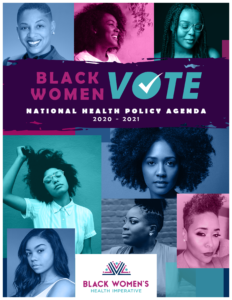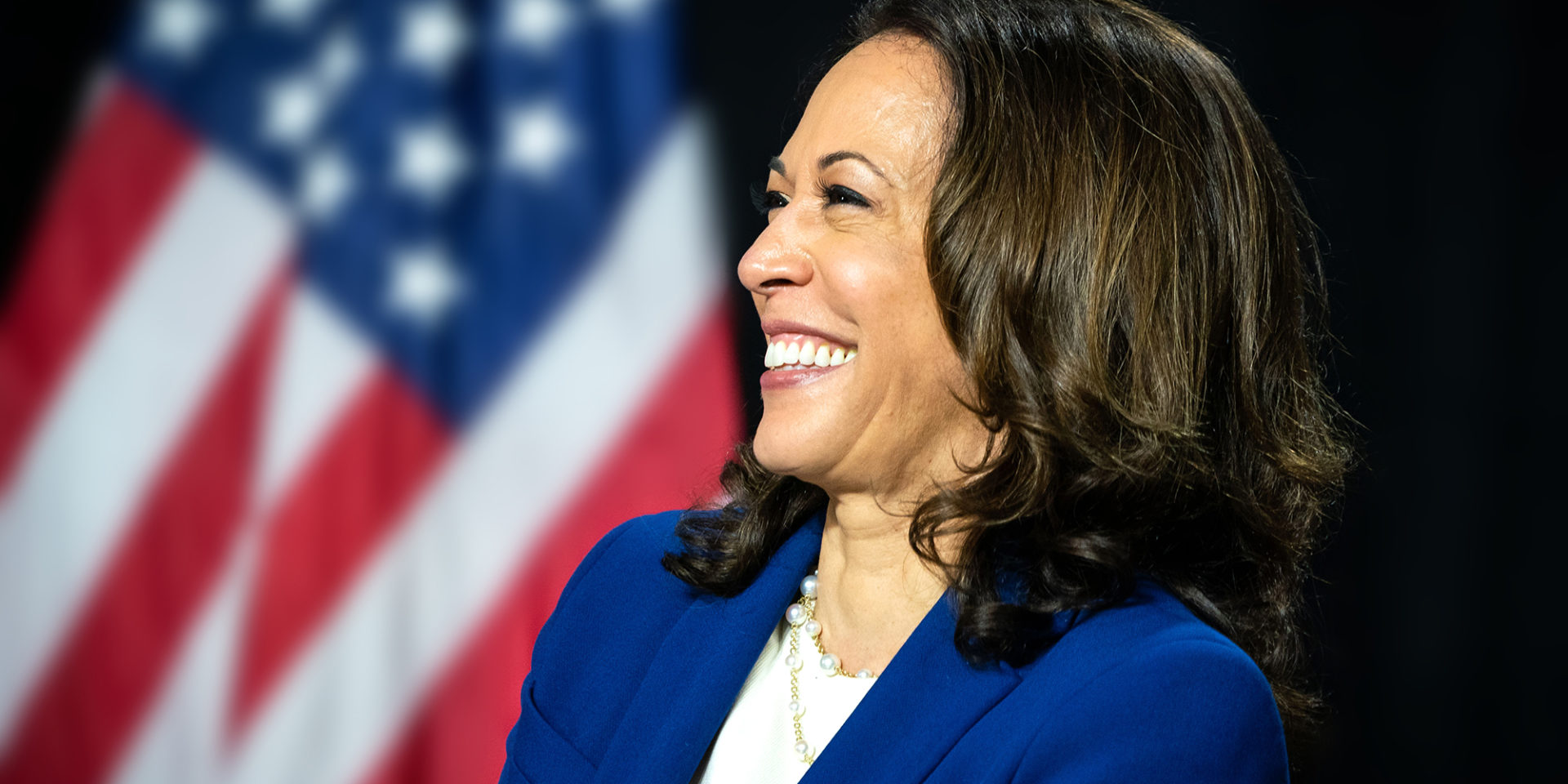On January 20th, America ushered in a new era. Kamala D. Harris made history as the first woman, the first Black person, and the first person of South Asian descent to be sworn in as Vice President of the United States.
As Harris assumes her powerful post, and as the trying and turbulent previous administration comes to a close, opportunities to advance issues critical to Black women’s health lie ahead. Harris has long been an advocate for women’s health issues, a few of which may be front and center in the new administration.
Uterine Fibroids
As a U.S. senator, Harris brought attention to a little-known health issue that disproportionately affects Black women: uterine fibroids. She proposed the Uterine Fibroid Research and Education Act to initiate crucial education and reduce racial disparities in outcomes for patients with uterine fibroids.[1]
More than 80% of Black women are diagnosed with fibroids during their lifetime. Black women encounter symptoms earlier than whites and are more likely to be treated with hysterectomies.[2] Studies have also shown that Black women are two to three times more likely to have fibroids than white women, and to experience more severe symptoms at younger ages.[3] Complications from uterine fibroids can lead to maternal mortality and morbidity, especially for Black women. Improving awareness of uterine fibroids is a health equity issue and a significant priority for Black women’s health.
Maternal Health
During Harris’s time in the senate, she introduced legislation to help prevent persistent biases that contribute to the ongoing crisis in Black maternal mortality. Two of these bills were the Maternal CARE Act and the Black Maternal Health Momnibus Act. The package of bills would have tackled systemic health disparities with investments in social determinants that influence maternal health outcomes, such as housing, transportation, and nutrition.[4],[5] The legislation also proposed a $25 million program to address systematic disparities and implicit bias in the health care system. The bills died in committee in the Republican-led Senate.
Abortion Rights
Vice President Harris has been a steadfast champion for women’s reproductive rights. During her run for president, she introduced a plan to protect abortion access. Modeled after the Voting Rights Act, the concept would have required states with a history of limiting women’s access to reproductive health care to get preclearance from the department of justice.[6] As a member of the senate, Harris co-sponsored the Women’s Health Protection Act, which would have guaranteed a pregnant person’s right to access and abortion.[7] The bill also protected patients and providers from interference of unnecessary restrictions.
She worked to remove a legislative rider that prohibits federal funds from being used to provide abortions and protect those people most adversely affected by the anti-choice policy: low income women, Black women and women of color, and other marginalize folks.[8] Harris has tried to protect the right to abortion by codifying protections significant to Black women. NARAL: Pro-Choice America gave her a 100 percent choice score in 2019.
Cancer
Harris wrote a New York Times op-ed about losing her mother to colon cancer.[9] “I carry her with me wherever I go. . . . As I continue the battle for a better healthcare system, I do so in her name.” Her mother, Dr. Shyamala Gopalan, was a world-renowned breast cancer researcher and scientist. This connection to cancer significantly influences Harris’s work. She advocates public funding for cancer research.
Black women and white women get breast cancer at about the same rate, but Black women die from breast cancer at a higher rate than white women.[10] Breast cancer is more likely to be found at an earlier stage among white women than Black women. Significant public funding of cancer research could help reduce racial disparities in breast cancer. Harris will support measures to increase public funding and support of cancer research, an issue vital to Black American women.
The Black Women’s Health Imperative often joined Vice President Harris to address these health issues and is eager to work with the new administration and Congress to advance health equity for Black women. We have developed The National Health Policy Agenda[11] for Black Women’s Health to help inform and support partnerships with policymakers and other stakeholders on the critical health policy issues that impact and improve the well-being of Black women.
The Agenda provides an opportunity to engage in substantive policy discussions—particularly around key health policy issues impacting Black women and girls—and to seek meaningful solutions.
In the areas of policy and advocacy, BWHI evaluates and develops national and state public policies to address the most critical issues facing Black women’s health. These include:
- Reproductive health and justice
- Maternal mortality and morbidity
- Cardiovascular disease and hypertension
- Breast, lung, colorectal, and cervical cancer
- Diabetes
- HIV/AIDS
- Mental health
 The Agenda also serves as a pathway for decision-makers to take action on behalf of their constituencies. This targeted policy approach will ensure that Black women’s health outcomes from birth to death are not treated as secondary to those of other women in our country.
The Agenda also serves as a pathway for decision-makers to take action on behalf of their constituencies. This targeted policy approach will ensure that Black women’s health outcomes from birth to death are not treated as secondary to those of other women in our country.
[1] Uterine Fibroid Research and Education Act of 2020. S. 4397. 116th Congress. https://www.govtrack.us/congress/bills/116/s4397.
[2] D’Ambrosio, Amanda. “Kamala Harris Introduces Bill on Uterine Fibroids.” Medpage Today. August 20, 2020. https://www.medpagetoday.com/obgyn/fibroids/88190.
[3] Valenti, Lauren. “What Vice President–Elect Kamala Harris’s Win Means for Women’s Health.” Vogue. Nov. 10, 2020. https://www.vogue.com/article/vice-president-elect-kamala-harris-womens-health-reproductive-rights-equity.
[4] Maternal CARE Act. S. 3363. 115th Congress. (2017-2018). https://www.congress.gov/bill/115th-congress/senate-bill/3363.
[5] Black Maternal Health Momnibus Act of 2020. S. 3424. 116th Congress. https://www.govtrack.us/congress/bills/116/s3424/text.
[6] Gonzales, Erica. “Where Does Kamala Harris Stand on Abortion and Reproductive Rights? Breaking Down the Vice President-Elect’s Policy.” November 9, 2020. Harper’s Bazaar. https://www.harpersbazaar.com/culture/politics/a34284404/kamala-harris-stance-on-abortion/.
[7] Women’s Health Protection Act of 2019. S.1645 — 116th Congress (2019-2020). https://www.congress.gov/bill/116th-congress/senate-bill/1645/text
[8] Gonzales, Erica. “Where Does Kamala Harris Stand on Abortion and Reproductive Rights? Breaking Down the Vice President-Elect’s Policy.” November 9, 2020. Harper’s Bazaar. https://www.harpersbazaar.com/culture/politics/a34284404/kamala-harris-stance-on-abortion/.
[9] Harris, Kamala. “Everyone Gets Sick. And We Deserve Better. What My Mother’s Death Taught Me about the Health Care System America Needs.” New York Times. December 29, 2018. https://www.nytimes.com/2018/12/29/opinion/sunday/kamala-harris-affordable-care-act-medicare.html.
[10] Richardson, Lisa C., S. Jane Henley, Jacqueline W. Miller, Greta Massetti, and Cheryll C. Thomas. “Patterns and Trends in Age-Specific Black–White Differences in Breast Cancer Incidence and Mortality—United States, 1999–2014.” Morbidity and Mortality Weekly Report. October 14, 2016. 65, no. 40:1093–1098. https://www.cdc.gov/mmwr/volumes/65/wr/mm6540a1.htm.
[11] Black Women Vote: National Health Policy Agenda for 2020-2021. Black Women Vote: National Health Policy Agenda for 2020-2021. October 2020.


